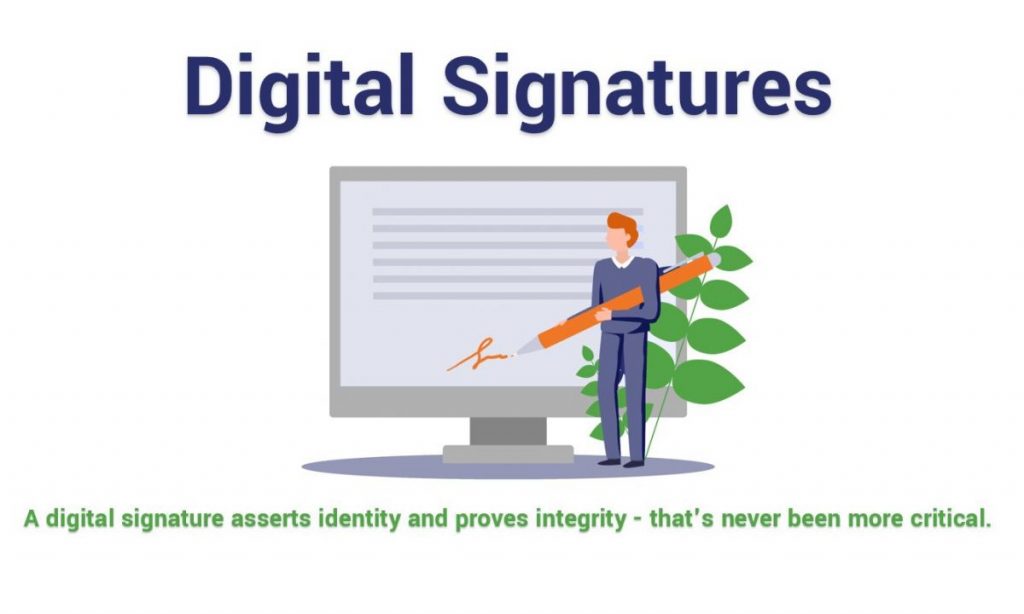Digital Signature


What is Digital Signature?
A digital signature, which is a sort of electronic signature, is a mathematical procedure that is commonly used to confirm the validity and integrity of a message (e.g., an email, a credit card transaction, or a digital document). Digital signatures generate a unique virtual fingerprint for a person or entity and are used to identify users and protect information in digital messages or documents. In emails, the email content itself becomes part of the digital signature. Digital signatures are far safer than other types of electronic signatures.
Understanding Digital Signature
The use of Digital Signature Certificates has sped up the verification procedure for many key documents and sped up online transactions. A DSC contains the certificate holder’s name, an expiration date, a unique serial number, a copy of the certificate holder’s public key (used for message encryption), and the certificate-issuing authority’s digital signature (which helps the recipient verify the authenticity of the certificate).
A DSC is digitally signed by a root certificate issued by a trustworthy certificate authority to ensure its legitimacy. Different operating systems and browsers keep a list of trustworthy CA root certificates on hand so that digital certificates can be easily verified. In fact, digital certificates can be self-signed when a public key infrastructure (PKI) is established internally.
A public key infrastructure (PKI) is a collection of public encryption keys that allows people and computers to securely communicate data over the internet while also verifying the other party’s identity. PKI is used to secure any type of sensitive data transferred over the internet.
Read related articles:
« Back to Glossary IndexDisclaimer
In line with the Trust Project guidelines, please note that the information provided on this page is not intended to be and should not be interpreted as legal, tax, investment, financial, or any other form of advice. It is important to only invest what you can afford to lose and to seek independent financial advice if you have any doubts. For further information, we suggest referring to the terms and conditions as well as the help and support pages provided by the issuer or advertiser. MetaversePost is committed to accurate, unbiased reporting, but market conditions are subject to change without notice.
About The Author
Damir is the team leader, product manager, and editor at Metaverse Post, covering topics such as AI/ML, AGI, LLMs, Metaverse, and Web3-related fields. His articles attract a massive audience of over a million users every month. He appears to be an expert with 10 years of experience in SEO and digital marketing. Damir has been mentioned in Mashable, Wired, Cointelegraph, The New Yorker, Inside.com, Entrepreneur, BeInCrypto, and other publications. He travels between the UAE, Turkey, Russia, and the CIS as a digital nomad. Damir earned a bachelor's degree in physics, which he believes has given him the critical thinking skills needed to be successful in the ever-changing landscape of the internet.
More articles

Damir is the team leader, product manager, and editor at Metaverse Post, covering topics such as AI/ML, AGI, LLMs, Metaverse, and Web3-related fields. His articles attract a massive audience of over a million users every month. He appears to be an expert with 10 years of experience in SEO and digital marketing. Damir has been mentioned in Mashable, Wired, Cointelegraph, The New Yorker, Inside.com, Entrepreneur, BeInCrypto, and other publications. He travels between the UAE, Turkey, Russia, and the CIS as a digital nomad. Damir earned a bachelor's degree in physics, which he believes has given him the critical thinking skills needed to be successful in the ever-changing landscape of the internet.






















































